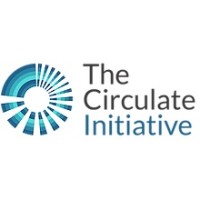A Sea of Plastics Claims and Credits: Steering Stakeholders Towards Impact
The report discusses the landscape of plastic claims and credit mechanisms, which have emerged in response to global commitments to combat plastic pollution. These mechanisms, including certifications and offset credits, validate plastic materials based on attributes such as source or processing method. Offset credits allow organizations to balance their plastic consumption by supporting initiatives that remove or recycle equivalent amounts of plastic. This concept is likened to carbon offset schemes and aims to promote circularity in plastic use.
In 2020, The Circulate Initiative (TCI) conducted a detailed review of 32 standards, certifications, and credit programs to evaluate their effectiveness and impact. The study identified key shortcomings, such as inconsistent definitions of “ocean plastic,” insufficient transparency, and the limited integration of climate-focused goals. A significant concern is the potential for greenwashing, where claims may lack credibility and impact while misleading stakeholders. Moreover, these programs often overlook the socio-economic risks posed to recyclers and waste pickers, particularly in emerging markets.
The study advocates for a best practice framework to address these gaps and ensure meaningful contributions toward reducing plastic waste. TCI emphasizes the importance of harmonization, multi-stakeholder input, and compliance with recognized standards such as ISEAL. It outlines 11 best practices divided into program development, impact contribution, implementation, and adoption. These include ensuring co-benefits for oceans, livelihoods, infrastructure, and climate, as well as incorporating third-party verification and continuous improvement processes.
Despite the challenges, the report highlights promising developments. Programs focusing on recycled content claims have shown greater maturity, and emerging initiatives demonstrate potential for scaling up. TCI stresses that these mechanisms should be a last resort, used alongside reduction, reuse, and recycling strategies. By aligning with policy developments, such as Extended Producer Responsibility (EPR) schemes, and leveraging lessons from carbon markets, plastic credit mechanisms can evolve into impactful tools for sustainability.


